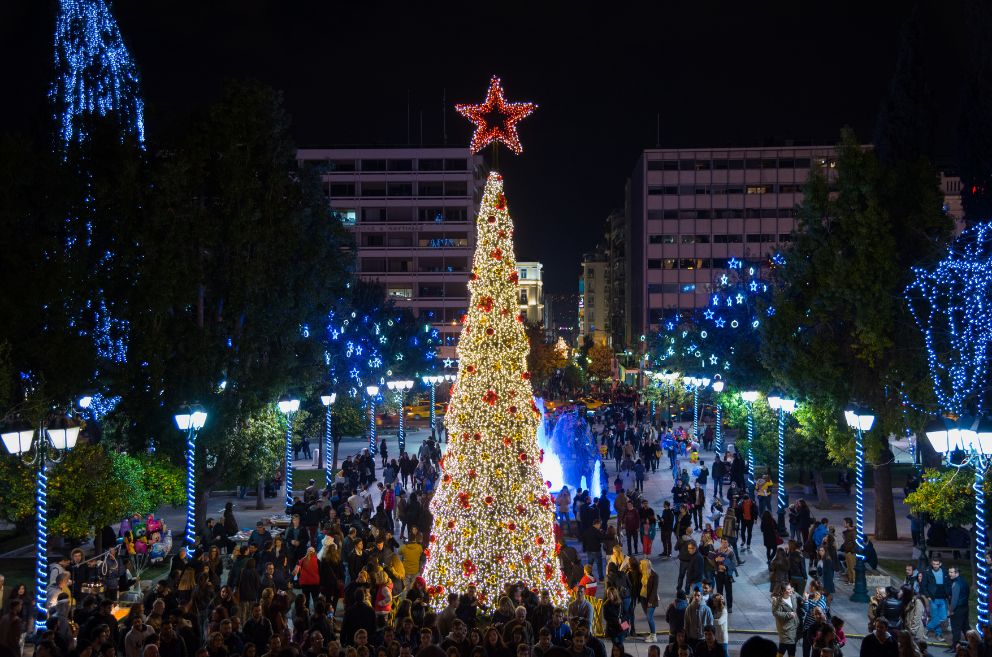Christmas is probably the most widely celebrated event. It is a celebration that brings people together and offers happiness and joy because of Jesus’ birth. Each country has different customs and Christmas tradition. But what about Greece? Rooted in centuries-old customs and influenced by the country’s deep cultural and religious history, Greek Christmas celebrations are a unique blend of religion, rituals, and delicious culinary delights.
Religious Significance
In Greece, Christmas is primarily a religious celebration. The majority of the population adheres to the Eastern Orthodox Church, and the Christmas season officially begins on November 15 with the Feast of Saint Philip. This marks the start of a 40-day period of fasting and reflection, leading up to the celebration of the birth of Jesus Christ on December 25.
Decorations and Preparations
As Christmas approaches, streets and houses become alive with festive decorations Even though the traditional decorations involved wooden ships, symbolic of the maritime history of the country, the very well-known Christmas tree-as we know it- has prevailed. Balconies and houses are adorned with twinkling lights and shiny ornaments, creating a warm atmosphere.
Christmas Carols
An important part of the Christmas Eve celebrations is the custom of the Christmas carols “kalanda”. Children go door to door singing Christmas carols, spreading good cheer, and receiving treats and money in return.
Christmas Day
On Christmas Day, families come together to enjoy a family lunch or dinner that includes a great variety of dishes and delicious desserts. The choices of the plates differ from region to region, and there isn’t a specific Christmas recipe such as the roasted turkey that is used as a symbolic dish in others countries. Greece is well-known for its iconic Christmas sweets such as melomakarona, diples and kourabiedes. In this day, it is also customary to exchange small gifts with our loved ones and spending time with them.
Epiphany
The Christmas season in Greece officially concludes with the celebration of Epiphany on January 6. On this day, the Blessing of the Waters takes place, where a priest throws a cross into the sea, river, or lake, and the attendees dive into the cold waters to catch it. This symbolic act represents the baptism of Jesus in the River Jordan.
Conclusion
Greek Christmas customs are deeply rooted in the country’s rich history and religious heritage. This season is a time for family gatherings, moments of happiness, culinary delights and exchanging presents. On the other hand, the most important thing that we should not forget is that Greek Christmas is devoted to the birth of Jesus brings people together in the spirit of love and goodwill.
Edited by: Vera Zagali

